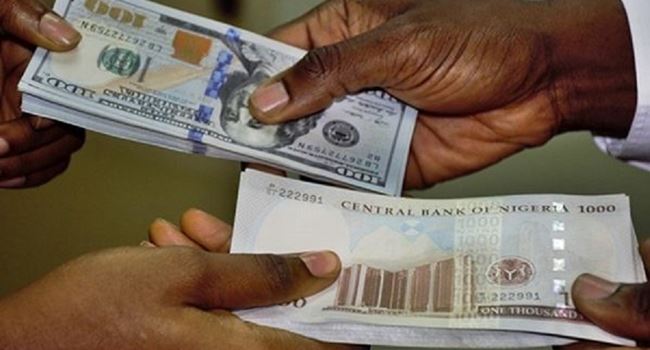In a significant turn of events on Friday, November 17, 2023, the Nigerian naira showcased substantial appreciation against the dollar, concluding at an impressive N791.75/$1 at the official market.
Experts have met this surge in the naira’s value with relief, aligning with expectations stemming from the Central Bank of Nigeria’s recent initiative to clear a portion of its foreign exchange (FX) backlog, instilling renewed confidence in the local currency.
The domestic currency witnessed a remarkable 6.24% appreciation, closing at N791.75 to a dollar at the end of Friday’s business, as reported by the Nigerian Autonomous Foreign Exchange Market (NAFEM), the official forex trading platform.
This translates to a notable N49.39 gain, reflecting a 5.24% increase in the local currency compared to its N841.14 close on Thursday. The intraday trading saw a high of N1120/$1 and a low of N701/$1, representing a substantial spread of N419/$1.
Data from the official NAFEM window revealed a forex turnover of $157.78 million at the close of trading, indicating a 23.60% decline compared to the previous day.
However, the naira experienced a marginal weakening at the parallel forex market, where unofficial forex transactions occur. The exchange rate depreciated by 0.26%, quoting at N1140/$1, with peer-to-peer traders offering rates around N1130.60/$1.
Addressing the FX Backlog:
The Central Bank of Nigeria (CBN) recently announced the commencement of clearing the backlog of foreign exchange forward contracts, a move anticipated to provide relief to the naira, the business sector, and the broader economy.
Nigeria has grappled with persistent dollar shortages since the departure of foreign investors during a period of low oil prices. The central bank, aiming to meet the demand for dollars, struggled as investors remained cautious.
The CBN’s recent efforts follow Finance Minister Wale Edun’s announcement on October 23, revealing expectations of $10 billion inflows to enhance FX market liquidity.
The resolution of the FX backlog is welcomed by local lenders, especially in the manufacturing sector, where procurement of raw materials and machinery had been hindered.
Gabriel Idahosa, Deputy President of the Lagos Chamber of Commerce and Industry, expressed optimism, stating that CBN’s move not only reinstates confidence in the traditional market but also has positive implications for portfolio investors, international airlines, and potential foreign direct investments.











